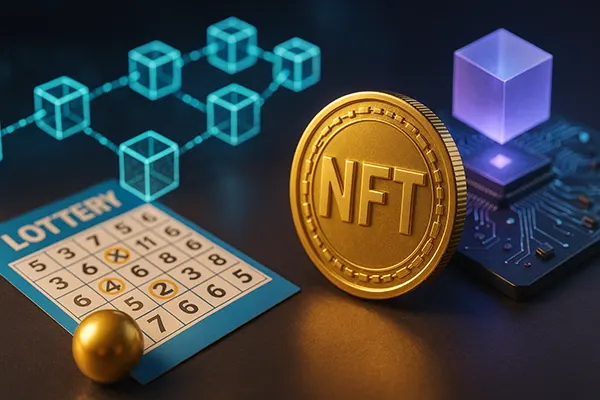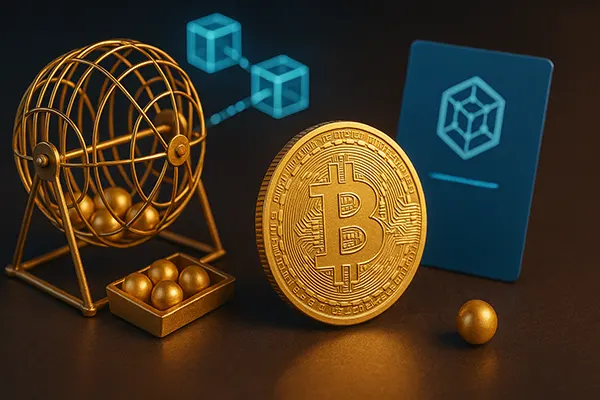
NFT Lotteries and Smart Contracts: Transparency and Security at a New Level
In recent years, NFT lotteries have emerged as an innovative and decentralised alternative to traditional lottery systems. With blockchain technology and smart contracts, these new systems offer an unparalleled level of transparency and security. As of February 2025, the landscape of NFT-based lottery platforms has matured significantly, delivering real value, community trust, and verifiable fairness to participants across the globe.
Smart Contracts as the Foundation of Transparent NFT Lotteries
Smart contracts, powered by blockchain protocols such as Ethereum and Solana, are self-executing programmes with the terms of the agreement directly written into code. In the case of NFT lotteries, these contracts automate ticket sales, draw procedures, and prize distribution. This removes the need for any central authority or intermediary, thereby drastically reducing the risk of manipulation or fraud.
All transactions related to the lottery are recorded immutably on the blockchain. Each ticket purchased, each random draw conducted, and each prize awarded is traceable and verifiable by the public. The use of audited smart contracts ensures that no backdoor functions exist, building an additional layer of trust for all participants.
As of early 2025, several platforms including PoolTogether, LuckyBlock, and Chainlink VRF-based lotteries have gained popularity. These systems use verifiable random number generation, making the draw process immune to human interference and ensuring absolute fairness for all users.
Reducing Operational Costs and Enhancing Accessibility
The implementation of smart contracts in NFT lotteries has significantly reduced operational overhead. Traditional lotteries often involve fees for administration, regulatory compliance, marketing, and physical infrastructure. In contrast, blockchain-based systems automate most processes and operate with minimal human involvement.
Moreover, participants from any jurisdiction can access NFT lottery platforms without geographical restrictions, as long as they hold compatible digital wallets. This opens the door for global participation and inclusivity, making the lottery more accessible to communities often excluded from legacy systems.
Some NFT lotteries even utilise a no-loss model, where ticket purchases are staked in DeFi protocols, generating interest that is awarded as prizes. Participants can withdraw their original stake at any time, turning the lottery into a gamified savings mechanism rather than a conventional gamble.
Security Features Backed by Blockchain Architecture
Security is a major concern for lottery participants, particularly when financial stakes are involved. NFT lottery platforms utilise the inherent security features of blockchain technology, such as decentralisation, immutability, and cryptographic validation. These properties make it virtually impossible for malicious actors to alter the results or steal funds once a transaction is confirmed.
Additionally, NFT tickets themselves function as secure, tokenised assets. Once minted, these tokens cannot be duplicated or tampered with, and ownership is easily verifiable on the public ledger. Users have full custody of their assets, mitigating risks associated with traditional lottery ticket fraud or loss.
As of February 2025, most leading NFT lottery platforms require rigorous smart contract audits and comply with decentralised identity (DID) verification where applicable. This combination of technical and procedural security ensures a trustworthy environment for both novice and experienced participants.
Anti-Cheat and Fraud Prevention Mechanisms
Smart contracts play a critical role in enforcing lottery rules and eliminating fraud. Conditions such as ticket limits, entry timeframes, and automatic disqualification of duplicate entries are encoded into the contract logic, executing autonomously without human intervention.
To prevent bot exploitation and automated mass entries, some platforms require users to sign transactions with decentralised identities or pass CAPTCHA-style verification through blockchain-based oracles. These measures add friction for potential bad actors while maintaining ease of access for genuine participants.
Blockchain-based identity solutions such as zk-SNARKs or Soulbound Tokens (SBTs) are increasingly being integrated, ensuring one-wallet-one-entry policies without compromising user anonymity. This innovation balances privacy and integrity, offering users peace of mind.

The Evolution of Fairness and Community Engagement
Beyond security and transparency, fairness is a critical pillar of trust in any lottery system. NFT lotteries leverage community governance and decentralised autonomous organisations (DAOs) to manage core aspects of their operations, from prize allocations to marketing campaigns and technical upgrades.
Token holders often have voting rights on key decisions, ensuring that the project remains aligned with user expectations and values. This participatory model fosters a sense of community ownership and long-term engagement, encouraging users to contribute to the platform’s growth.
Transparency is not only technological but also social. Open-source code, public audits, and real-time financial dashboards are now standard features of trustworthy NFT lottery platforms. These tools allow the community to scrutinise operations, enhancing accountability and collective oversight.
Reward Structures and Loyalty Incentives
Modern NFT lottery systems employ creative reward models to attract and retain users. Instead of a single large prize, some platforms distribute multiple smaller rewards, increasing the chance of winning and maintaining interest among participants.
Loyalty programmes are also gaining traction. Users who regularly participate or hold lottery-specific tokens may receive exclusive NFT drops, reduced entry fees, or staking bonuses. These incentives build habitual engagement and reinforce user loyalty without resorting to coercive mechanics.
Referral schemes and social sharing bonuses further extend community involvement. Participants who bring new users to the platform may earn additional entries or rewards, transforming the user base into an active promotional network.
